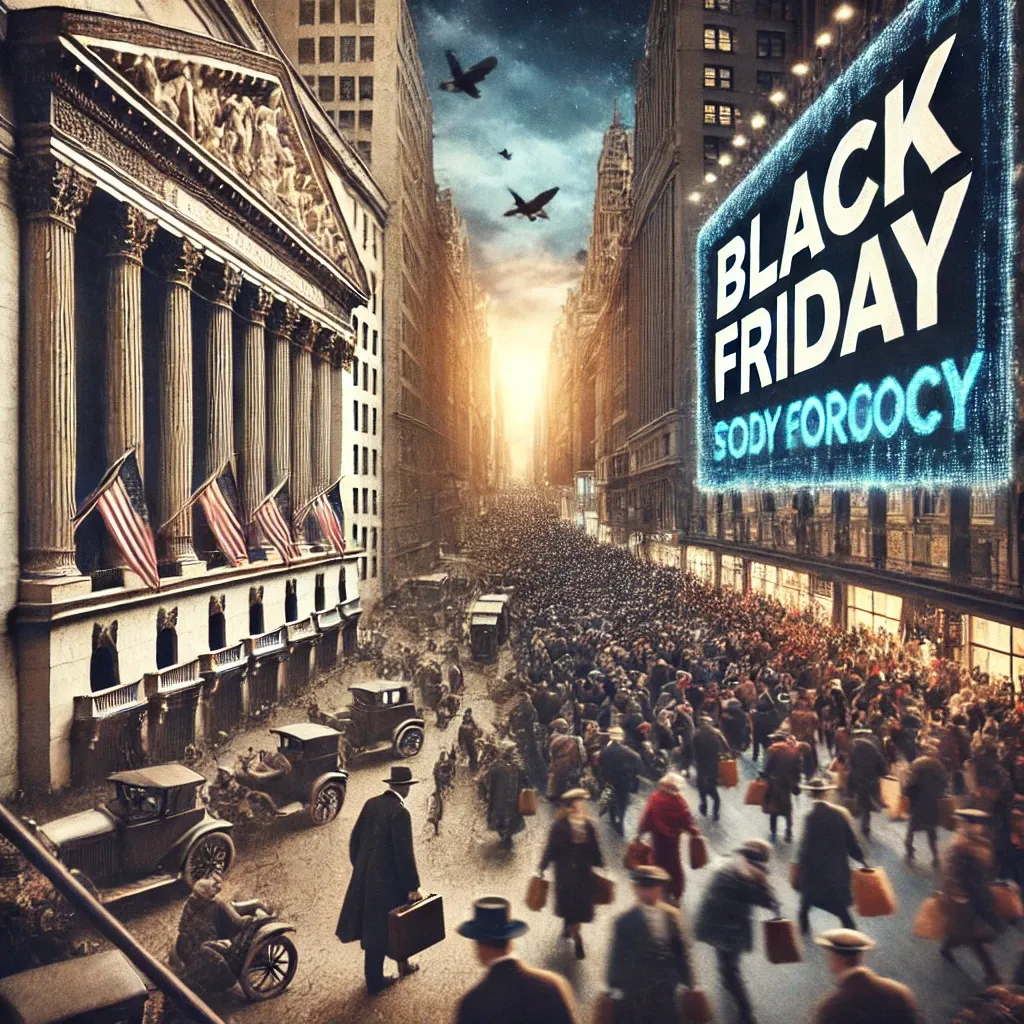What led to the creation of Black Friday? Discover the evolution of this global phenomenon, from financial crises to modern-day shopping madness.
The Dark History Behind Black Friday
The term “Black Friday” originated in the 19th century but gained widespread recognition due to two major historical events. The first occurred in 1869, during the financial panic caused by gold market manipulation. Later, the term evolved to describe the chaotic shopping day after Thanksgiving.In the 1920s, Macy’s Thanksgiving Day Parade began paving the way for Black Friday’s association with shopping. Retailers used this day to launch holiday sales, transforming it into a symbol of consumerism. However, the phrase was cemented by Philadelphia police in the 1950s, who used “Black Friday” to describe the traffic congestion and unruly crowds following Thanksgiving.Today, Black Friday is synonymous with deals and discounts, but its roots in economic hardship and public unrest reveal a darker origin.
👉”Learn More About Black Friday Origins”👈
Black Friday’s Role in Global Economies
Black Friday expanded beyond the United States, embedding itself in countries like Canada and South Africa, each embracing the tradition with unique variations.In Canada, Black Friday gained prominence to compete with U.S. retail prices. For South Africa, it offers an opportunity to boost commerce, particularly online sales. Despite regional differences, the core of Black Friday remains the same: a day to drive consumer spending.Interestingly, some argue the term’s negative connotations (like “going into the black” to indicate profitability) reflect society’s prioritization of materialism. Regardless, its economic impact cannot be ignored, making it a cornerstone for global retailers.
👉”Explore Black Friday Around the World”👈
Black Friday Myths and Facts
Many myths surround Black Friday. For example, some believe it was named after the Great Depression of 1929, but this is incorrect. The connection lies instead in 1869’s “Black Friday,” a term marking a financial collapse when Jay Gould and James Fisk attempted to corner the gold market.Factually, modern Black Friday was cemented in the 1980s as retailers framed it positively—shoppers associated the term with going “into the black,” a sign of profit. Myth or not, the day symbolizes the start of holiday shopping and encourages millions to line up at midnight for limited-time deals.
👉”Watch Black Friday Stories”👈
Conclusion
Black Friday’s story is one of transformation, beginning with a chaotic history of financial distress and evolving into a worldwide shopping tradition. As Franklin D. Roosevelt said, “The only thing we have to fear is fear itself.” This rings true, whether facing economic uncertainty or tackling long lines for a discount TV. Embracing Black Friday’s history reminds us of its significance beyond the deals.






